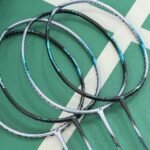When it comes to optimizing athletic performance, one factor that is often overlooked is the role of proper nourishment and fuel. Whether you are a professional athlete, a weekend warrior, or someone looking to enhance your fitness routine, understanding the importance of quality “fodder for sports work” can make all the difference. Fodder refers to the fuel or nutrition required to sustain an athlete’s energy levels, boost recovery, and help with long-term performance goals. This article will explore the different types of fodder needed for various aspects of sports work, from daily nutrition to post-exercise recovery strategies.
The Role of Nutrition in Sports Work
Nutrition is the cornerstone of any athletic endeavor. Your body requires a variety of nutrients, including carbohydrates, proteins, fats, vitamins, and minerals, to maintain energy levels, promote muscle repair, and support overall health. Athletes need a tailored approach to their diet, depending on the type of sport they participate in, the intensity of their training, and their specific performance goals.
Carbohydrates: The Primary Fuel Source
Carbohydrates are the body’s primary source of energy during exercise. Whether you’re running a marathon, lifting weights, or engaging in intense cardio, your body relies on glycogen, a stored form of glucose, to fuel your muscles. When engaging in high-intensity sports work, consuming complex carbohydrates like whole grains, fruits, and vegetables ensures a steady release of energy, preventing fatigue and improving endurance.
Proteins: Essential for Muscle Repair
After intense physical activity, muscles experience micro-tears that require repair and rebuilding. Protein is the key macronutrient that helps in muscle recovery and growth. Consuming an adequate amount of protein is essential for athletes to prevent muscle breakdown and accelerate the healing process. Sources of lean protein such as chicken, fish, eggs, and plant-based alternatives like tofu and legumes should be incorporated into an athlete’s diet for optimal results.
Fats: Long-Lasting Energy for Endurance Athletes
Healthy fats, such as those found in avocados, nuts, seeds, and olive oil, are crucial for athletes involved in long-duration events. Unlike carbohydrates, which provide quick bursts of energy, fats supply sustained energy, making them particularly beneficial for endurance sports like cycling, running, and swimming. Fats also play a vital role in hormone regulation and the absorption of fat-soluble vitamins.
Hydration: A Vital Component
Proper hydration is often underestimated in its importance. Dehydration can cause fatigue, cramping, decreased endurance, and even lead to heatstroke. Sports work demands that athletes maintain hydration levels before, during, and after exercise. Consuming water is essential, but in cases of long or particularly intense sessions, electrolyte-rich drinks can help replenish lost minerals and improve performance.
Types of Fodder for Sports Work: Tailoring Your Diet to Your Activity
The type of fodder you require for sports work will vary depending on the nature of your activity. For example, a sprinter’s diet will differ from that of a marathon runner or a weightlifter. Each sport demands specific nutritional strategies for optimal results.
Fodder for Strength and Power Sports
Strength sports, such as weightlifting, bodybuilding, or powerlifting, require a focus on muscle-building nutrition. A high-protein diet is essential for muscle repair, while carbohydrates are necessary to fuel intense lifting sessions. Power athletes may also require an increased intake of fats to support longer training sessions. Supplements such as creatine, branched-chain amino acids (BCAAs), and whey protein can help to maximize muscle growth and recovery.
Fodder for Endurance Sports
Endurance athletes, including marathon runners, cyclists, and swimmers, require a diet rich in carbohydrates to fuel long training sessions. Endurance sports work depletes glycogen stores quickly, so athletes need to consume a higher ratio of carbohydrates to maintain energy. Protein is still essential, but the focus shifts more towards replenishing glycogen and providing sustained energy throughout the event.
Fodder for Mixed-Intensity Sports
Sports that require a combination of power and endurance, such as soccer, basketball, and tennis, require a balanced diet that includes both carbohydrates and proteins. Energy demands fluctuate during the game, so athletes need a combination of quick-release energy from carbohydrates and sustained energy from fats. Additionally, proteins are vital for muscle repair post-exercise, while hydration remains crucial.
Pre-Workout Nutrition: Preparing the Body for Physical Activity
Eating the right foods before a workout or sports session can significantly improve performance. The goal of pre-workout nutrition is to fuel the body with enough energy to perform optimally, prevent fatigue, and reduce the risk of injury. Pre-workout meals should focus on easily digestible carbohydrates, moderate protein, and low fat content.
Carbs and Protein Before Exercise
A typical pre-workout meal might include foods such as a banana with peanut butter, oatmeal with berries, or a small chicken sandwich. These meals provide a quick source of energy and help ensure that muscles are well-equipped for strenuous activity. The timing of this meal is important as well: it should be consumed approximately 1-2 hours before the workout for maximum benefit.
Post-Workout Nutrition: Recovery and Rebuilding
Post-workout nutrition is just as important as pre-workout fueling. After a strenuous exercise session, the body needs to replenish glycogen stores and repair muscle tissue. A post-workout meal should contain both carbohydrates and proteins to support this process. The timing of this meal is critical — consuming it within 30 minutes to an hour after exercise ensures optimal muscle recovery and replenishment.
Carbs and Protein After Exercise
Foods such as grilled chicken with sweet potatoes, a smoothie with protein powder and fruit, or a rice bowl with lean beef and vegetables are excellent choices. These meals provide the necessary macronutrients to refuel and rebuild muscles. Additionally, the inclusion of anti-inflammatory foods such as berries, leafy greens, and turmeric can aid in reducing muscle soreness and promoting faster recovery.
Supplements and Their Role in Fodder for Sports Work
While a well-balanced diet should provide most of the necessary nutrients, supplements can sometimes be useful for athletes who need additional support. It’s essential to consult with a healthcare professional or dietitian before incorporating supplements into your routine, as overuse or improper use can be detrimental.
Popular Supplements for Sports Performance
Whey Protein: This fast-digesting protein is ideal for muscle recovery and repair.
Creatine: Enhances strength, power output, and muscle mass during intense training.
BCAAs: Help reduce muscle soreness and support recovery.
Electrolytes: Crucial for replenishing lost minerals during prolonged workouts or events.
Caffeine: A natural stimulant that can improve focus, endurance, and energy levels during exercise.
The Importance of Rest and Recovery in Sports Work
Fodder for sports work isn’t just about what you eat and drink; rest and recovery are also key components of performance. Recovery time allows muscles to rebuild, and the body can adapt to the stresses of training. Adequate sleep, stretching, and relaxation techniques should complement the nutritional strategies you implement for optimal results.
Sleep and Muscle Recovery
Sleep is when most of the body’s recovery processes take place. It is during deep sleep that muscle repair and growth happen, along with the release of growth hormones. Ensuring 7-9 hours of quality sleep per night is critical for anyone engaging in regular physical activity, whether for fitness or sports work.
Conclusion
In conclusion, the concept of “fodder for sports work” is multi-dimensional. It goes beyond just fueling the body with calories; it’s about providing the right nutrients at the right times to maximize performance, enhance recovery, and maintain long-term health. A tailored approach to nutrition, which includes proper hydration, a balance of macronutrients, and rest, will help athletes of all levels perform at their best. By understanding the specific demands of your sport, you can optimize your diet to meet your goals and maintain peak physical condition.
ALSO READ:DecoratorAdvice.Com: Expert Tips And Ideas for Home Decoration
FAQs
What is the best food to eat before a workout?
The best foods to eat before a workout include easily digestible carbohydrates and moderate protein. A banana with peanut butter or oatmeal with fruit are excellent choices.
How much protein should I consume post-workout?
Aim for about 20-30 grams of protein post-workout to help repair muscle tissue and support recovery.
Can supplements replace a balanced diet?
Supplements should never replace a balanced diet. They can complement it, but whole foods are essential for optimal nutrition.
How important is hydration during exercise?
Hydration is critical to performance and recovery. Drinking water before, during, and after exercise helps maintain energy levels and prevents dehydration.
Should I eat fats before a workout?
Fats should be consumed in moderation before a workout. They are important for long-lasting energy but should not be the focus of pre-workout meals as they take longer to digest.











